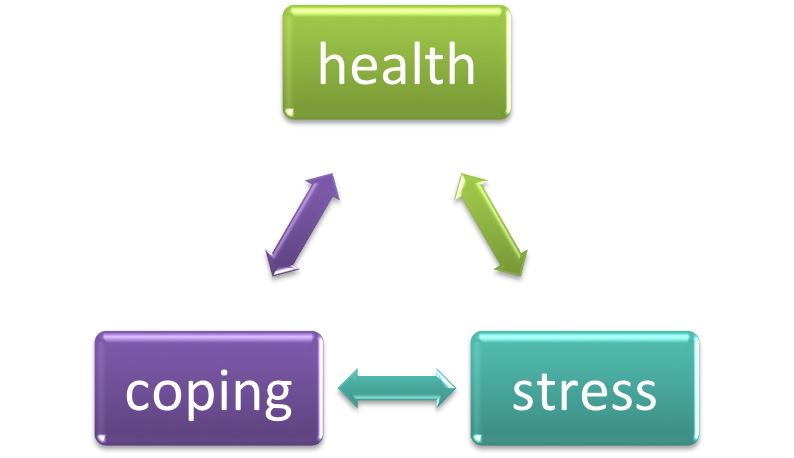12.7: Summary, Key Terms, and Self-Test
- Page ID
- 123595
\( \newcommand{\vecs}[1]{\overset { \scriptstyle \rightharpoonup} {\mathbf{#1}} } \)
\( \newcommand{\vecd}[1]{\overset{-\!-\!\rightharpoonup}{\vphantom{a}\smash {#1}}} \)
\( \newcommand{\id}{\mathrm{id}}\) \( \newcommand{\Span}{\mathrm{span}}\)
( \newcommand{\kernel}{\mathrm{null}\,}\) \( \newcommand{\range}{\mathrm{range}\,}\)
\( \newcommand{\RealPart}{\mathrm{Re}}\) \( \newcommand{\ImaginaryPart}{\mathrm{Im}}\)
\( \newcommand{\Argument}{\mathrm{Arg}}\) \( \newcommand{\norm}[1]{\| #1 \|}\)
\( \newcommand{\inner}[2]{\langle #1, #2 \rangle}\)
\( \newcommand{\Span}{\mathrm{span}}\)
\( \newcommand{\id}{\mathrm{id}}\)
\( \newcommand{\Span}{\mathrm{span}}\)
\( \newcommand{\kernel}{\mathrm{null}\,}\)
\( \newcommand{\range}{\mathrm{range}\,}\)
\( \newcommand{\RealPart}{\mathrm{Re}}\)
\( \newcommand{\ImaginaryPart}{\mathrm{Im}}\)
\( \newcommand{\Argument}{\mathrm{Arg}}\)
\( \newcommand{\norm}[1]{\| #1 \|}\)
\( \newcommand{\inner}[2]{\langle #1, #2 \rangle}\)
\( \newcommand{\Span}{\mathrm{span}}\) \( \newcommand{\AA}{\unicode[.8,0]{x212B}}\)
\( \newcommand{\vectorA}[1]{\vec{#1}} % arrow\)
\( \newcommand{\vectorAt}[1]{\vec{\text{#1}}} % arrow\)
\( \newcommand{\vectorB}[1]{\overset { \scriptstyle \rightharpoonup} {\mathbf{#1}} } \)
\( \newcommand{\vectorC}[1]{\textbf{#1}} \)
\( \newcommand{\vectorD}[1]{\overrightarrow{#1}} \)
\( \newcommand{\vectorDt}[1]{\overrightarrow{\text{#1}}} \)
\( \newcommand{\vectE}[1]{\overset{-\!-\!\rightharpoonup}{\vphantom{a}\smash{\mathbf {#1}}}} \)
\( \newcommand{\vecs}[1]{\overset { \scriptstyle \rightharpoonup} {\mathbf{#1}} } \)
\( \newcommand{\vecd}[1]{\overset{-\!-\!\rightharpoonup}{\vphantom{a}\smash {#1}}} \)
\(\newcommand{\avec}{\mathbf a}\) \(\newcommand{\bvec}{\mathbf b}\) \(\newcommand{\cvec}{\mathbf c}\) \(\newcommand{\dvec}{\mathbf d}\) \(\newcommand{\dtil}{\widetilde{\mathbf d}}\) \(\newcommand{\evec}{\mathbf e}\) \(\newcommand{\fvec}{\mathbf f}\) \(\newcommand{\nvec}{\mathbf n}\) \(\newcommand{\pvec}{\mathbf p}\) \(\newcommand{\qvec}{\mathbf q}\) \(\newcommand{\svec}{\mathbf s}\) \(\newcommand{\tvec}{\mathbf t}\) \(\newcommand{\uvec}{\mathbf u}\) \(\newcommand{\vvec}{\mathbf v}\) \(\newcommand{\wvec}{\mathbf w}\) \(\newcommand{\xvec}{\mathbf x}\) \(\newcommand{\yvec}{\mathbf y}\) \(\newcommand{\zvec}{\mathbf z}\) \(\newcommand{\rvec}{\mathbf r}\) \(\newcommand{\mvec}{\mathbf m}\) \(\newcommand{\zerovec}{\mathbf 0}\) \(\newcommand{\onevec}{\mathbf 1}\) \(\newcommand{\real}{\mathbb R}\) \(\newcommand{\twovec}[2]{\left[\begin{array}{r}#1 \\ #2 \end{array}\right]}\) \(\newcommand{\ctwovec}[2]{\left[\begin{array}{c}#1 \\ #2 \end{array}\right]}\) \(\newcommand{\threevec}[3]{\left[\begin{array}{r}#1 \\ #2 \\ #3 \end{array}\right]}\) \(\newcommand{\cthreevec}[3]{\left[\begin{array}{c}#1 \\ #2 \\ #3 \end{array}\right]}\) \(\newcommand{\fourvec}[4]{\left[\begin{array}{r}#1 \\ #2 \\ #3 \\ #4 \end{array}\right]}\) \(\newcommand{\cfourvec}[4]{\left[\begin{array}{c}#1 \\ #2 \\ #3 \\ #4 \end{array}\right]}\) \(\newcommand{\fivevec}[5]{\left[\begin{array}{r}#1 \\ #2 \\ #3 \\ #4 \\ #5 \\ \end{array}\right]}\) \(\newcommand{\cfivevec}[5]{\left[\begin{array}{c}#1 \\ #2 \\ #3 \\ #4 \\ #5 \\ \end{array}\right]}\) \(\newcommand{\mattwo}[4]{\left[\begin{array}{rr}#1 \amp #2 \\ #3 \amp #4 \\ \end{array}\right]}\) \(\newcommand{\laspan}[1]{\text{Span}\{#1\}}\) \(\newcommand{\bcal}{\cal B}\) \(\newcommand{\ccal}{\cal C}\) \(\newcommand{\scal}{\cal S}\) \(\newcommand{\wcal}{\cal W}\) \(\newcommand{\ecal}{\cal E}\) \(\newcommand{\coords}[2]{\left\{#1\right\}_{#2}}\) \(\newcommand{\gray}[1]{\color{gray}{#1}}\) \(\newcommand{\lgray}[1]{\color{lightgray}{#1}}\) \(\newcommand{\rank}{\operatorname{rank}}\) \(\newcommand{\row}{\text{Row}}\) \(\newcommand{\col}{\text{Col}}\) \(\renewcommand{\row}{\text{Row}}\) \(\newcommand{\nul}{\text{Nul}}\) \(\newcommand{\var}{\text{Var}}\) \(\newcommand{\corr}{\text{corr}}\) \(\newcommand{\len}[1]{\left|#1\right|}\) \(\newcommand{\bbar}{\overline{\bvec}}\) \(\newcommand{\bhat}{\widehat{\bvec}}\) \(\newcommand{\bperp}{\bvec^\perp}\) \(\newcommand{\xhat}{\widehat{\xvec}}\) \(\newcommand{\vhat}{\widehat{\vvec}}\) \(\newcommand{\uhat}{\widehat{\uvec}}\) \(\newcommand{\what}{\widehat{\wvec}}\) \(\newcommand{\Sighat}{\widehat{\Sigma}}\) \(\newcommand{\lt}{<}\) \(\newcommand{\gt}{>}\) \(\newcommand{\amp}{&}\) \(\definecolor{fillinmathshade}{gray}{0.9}\)Jennifer Walinga and Jorden A. Cummings
Summary
Early research on stress was conducted by Canadian physiologist Hans Selye, who studied how rats responded to stressful situations. He described the general adaptation syndrome, referring to the three distinct phases of physiological change occurring in response to long-term stress: alarm, resistance, and exhaustion. Stress creates an increase in general arousal in the sympathetic division of the autonomic nervous system and the HPA axis.
Stressful events can be divided into major and daily negative life events. Major events, such as a major illness or the death of a loved one, that occur relatively infrequently and have large disruptive effects on our lives. Daily events, such as losing one’s key or having an argument with someone, occur more frequently but have an additive detrimental effect on our mental health. We tend to respond to stress with a fight or flight or tend and befriend response.

Figure 12.21 The Interaction of Health, Stress, and Coping, by J. Walinga
Whether stress is considered a response, a stimulus, or a transaction, how a person experiences stress is a complex interweaving of individual health, the capacity to cope, and the stress itself. Heavy or chronic stress is associated with negative physiological or health outcomes.
Stress level and experience are mediated by an individual’s perception based on the cognitive appraisal of the stressor. If a stressor is perceived to be threatening and an individual believes he or she does not have the resources to cope with that stressor, then the stress experienced will be debilitative. But if a person is able to interpret the stressor positively, or believes he or she has the resources to cope, then the outcome can be neutral or even facilitative, as in the case of stress-related growth.
Not only the stressor, but the physiological stress response itself (e.g., increased heart rate, sweating, and trembling), can produce anxiety based on interpretation. If a person interprets the physiological response to a stressor negatively, as worrisome, the impact on health or performance will be debilitative. But if the person interprets the physiological response positively, as a sign of readiness or preparation, the impact can be neutral, positive, or even facilitative.
Mental and physical health appear to be the greatest leverage points for helping individuals cope with or perceive stress positively. If a person is healthy, he or she is more likely to perceive a stressor positively and/or cope well with negative stressors. If a person is able to cope productively (i.e., problem-focused coping) with negative stress, his or her health is more likely to remain strong. If a person is able to perceive stress facilitatively, he or she is more likely to retain health and cope productively.
Health psychology is an area of psychology that examines the intersection of psychology and health. Health psychologists might examine topics like how our behaviour influences our likelihood and experience of disease, how psychology can influence medicine, and how to promote physical health. Health psychology and its related discipline of behavioural medicine is an interesting career option that many psychologists choose.
Positive psychology focuses on the strengths, virtues, and talents that contribute to successful functioning and enable flourishing. It covers topics like happiness and well-being. Overall, research in positive psychology has found that most people are happy and that happiness causes good things in life. In terms of satisfaction, having meaning in life seems to trump pleasure. Moreover, most people are resilient and bounce back from adversity. In this chapter we examined three key strengths in particular: Forgiveness, gratitude, and humility. Forgiveness is essential for harmony in our relationships and benefits the self as well. Gratitude is an important protective factor against stress and deepens life. It is correlated with empathy, forgiveness, and the willingness to help others. Humility includes both a clear sense of one’s abilities and achievements as well as the ability to acknowledge one’s imperfections.
Key Terms
|
|
Self-Test
Query \(\PageIndex{1}\)
Contributors and Attributions
- Introduction to Psychology by Jorden A. Cummings & Lee Sanders is licensed under a Creative Commons Attribution-NonCommercial-ShareAlike 4.0 International License, except where otherwise noted.
- Refer to Source Chapter Attributions for more details


